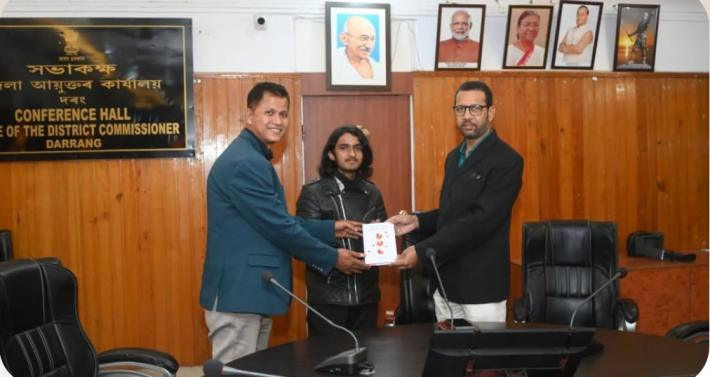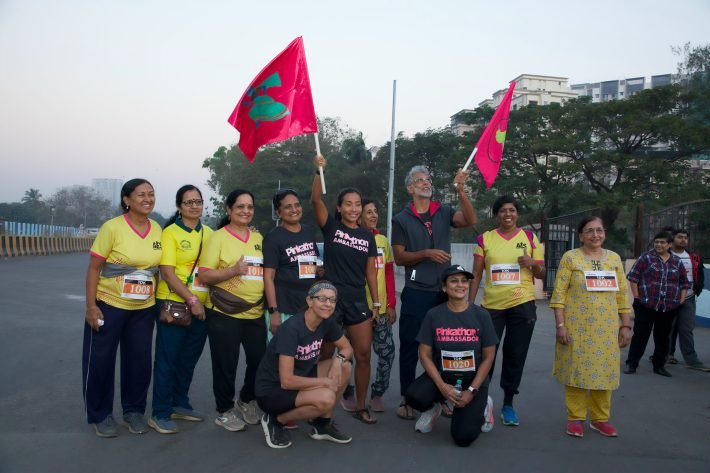Gen Z: They may be weaned on reels, aura-aware, vibe-conscious and meme-loaded… but it’s their courage, not their filters, that’s igniting streets, toppling power, and changing the world. Sumita Chakraborty, Editor-in-chief, TheGlitz, reports…
Gen Z for Change
They say Gen Z is too busy curating vibes, obsessing about auras, scrolling through filters. But in Kathmandu, those same youth aged 14, 15, 16… the ones they say can’t vote yet… are vocining their dissent on rampant corruption, raising placards, singing anthems, demanding more than just digital clout. Their voices say corruption is no longer something to grin about in memes; it’s something to burn down with truth.
TheGlitz looks closer at a movement swelling with raw energy in Nepal where teenagers, high school freshmen, walk in uniform carrying books… literal symbols of hope and knowledge… and speaking out loud against decades of greed.
“You block our apps but not your pockets!”

On the ground in Maitighar, students as young as 14 and 15 joined this clarion call. Grade‑10 pupils, their voices cracked with youth, chanting, “You block our apps but not your pockets!” 16‑year‑olds insisted corruption stop being tolerated, parents’ sweat not ending in politicians’ villas. Even before full adulthood, they proved age is no barrier to outrage.
Instagram stories of “Nepo Kids” flaunting wealth landed in feeds… kids tagged the children of elites, not because they wanted chaos, but because they wanted it fair. When social media platforms were blocked, these young ones turned up anyway, on streets paved with passion, determined to refuse silence.
These protests were sparked by a social media ban but they surged into something bigger… rooting out corruption. Grievances over unpaid debts to democracy: politicians who occupy power yet serve themselves; institutions that talk about service but run on cronyism; a country where privilege is inherited, while opportunity is scarce. Suddenly, every 14‑year‑old chanting in the streets became a protester, every 16‑year‑old deciding not to leave the country because the ground here still needs shaking. And when curfews, tear gas, and crackdowns killed 19 of them and tried to stop them, defiant, they held each other’s hands, sang, stood, unafraid.
No Kidding!

A 16‑year‑old school girl told Reuters she hopes youth worldwide stop thinking opportunity lies only beyond borders and start demanding it here. A 14‑year‑old student, still in high school, stood under the monsoon skies, barefoot, clutching school books as shields, shouting for leaders who see them, not exploit them. These are not soundbites. These are soulfire.
When Prime Minister K.P. Sharma Oli resigned days later, it wasn’t just politics. It was proof: a generation laughed at, dismissed as aesthetic, meaningless, however, they orchestred and delivered change.
When so many have asked Gen Z, “What do you want?” these young ones answered with action: accountability, truth, transparency. They matched their memes with marching feet.
We might joke that they’re reel babies, vibe or aura conscious, addicted to matcha… but yes, they are aware of the unseen layers. But those layers matter. Because corruption thrives in shadows. It hides in murmured deals, silent abuse of privilege, washed‑out promises. Today, Gen Z is turning up the light. Light in their eyes, in their chants, in broken pavement, in shared hashtags. Age doesn’t matter when your cry echoes across the valley.
TheGlitz Says
Nepal’s youth aren’t just protesters, they’re cartographers of hope, mapping out a future where governments serve, not just rule. Where being woke means more than trending tags, it means demanding justice. Their uprising is a lesson to the world: do not underestimate a child who sees something broken and decides they will help fix it.
So yes, Gen Z may get memes about aura, vibe, aesthetic… but in Nepal these days, those memes are sleeves rolled up, fists raised, voices chanted. Together, they root out corruption, dismantle complacency and build something new. A generation learning that the most powerful filter is courage, the strongest vibe is justice. They are the change, not the punchline.













